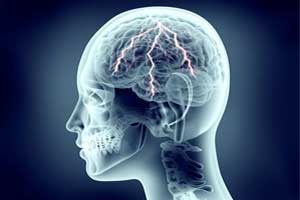- Home
- Editorial
- News
- Practice Guidelines
- Anesthesiology Guidelines
- Cancer Guidelines
- Cardiac Sciences Guidelines
- Critical Care Guidelines
- Dentistry Guidelines
- Dermatology Guidelines
- Diabetes and Endo Guidelines
- Diagnostics Guidelines
- ENT Guidelines
- Featured Practice Guidelines
- Gastroenterology Guidelines
- Geriatrics Guidelines
- Medicine Guidelines
- Nephrology Guidelines
- Neurosciences Guidelines
- Obs and Gynae Guidelines
- Ophthalmology Guidelines
- Orthopaedics Guidelines
- Paediatrics Guidelines
- Psychiatry Guidelines
- Pulmonology Guidelines
- Radiology Guidelines
- Surgery Guidelines
- Urology Guidelines
Compared to traditional cannabis, Synthetic cannabinoids more likely to cause seizures, coma in kids

A new study has found that Teens using synthetic cannabinoids (SCs) were more likely to experience seizures and coma compared to those using traditional cannabis. Synthetic cannabinoids (SCs) contain chemicals similar to tetrahydrocannabinol in cannabis but are much more potent. They are known by names like Spice and K2 and have been linked to heart and kidney damage, seizures, psychosis and death.
Adolescents represent the largest age group that presents to emergency departments (ED) for synthetic cannabinoid (SC) toxicity; however, the neurotoxic effects of acute Synthetic cannabinoids exposures in this group are understudied. The researchers set out to characterize the neuropsychiatric presentation of adolescents with SC-related exposure in the ED compared with those with traditional cannabis exposure.
The Researchers conducted a multicenter registry of clinical information prospectively collected by medical toxicologists (Toxicology Investigators Consortium Case Registry) was reviewed for adolescents presenting to the ED after SC or cannabis exposure from 2010 through 2018. Associations were measured between drug exposures and neuropsychiatric symptoms and/or signs. Exposures were classified into 4 groups: SC-only exposure, SC-polydrug exposures, cannabis-only exposure, and cannabis-polydrug exposures.
They found that adolescents presenting to the ED with SC-only exposure (n = 107) had higher odds of coma and/or central nervous system depression (odds ratio [OR] 3.42; 95% confidence interval [CI] 1.51–7.75) and seizures (OR 3.89; 95% CI 1.39–10.94) than those with cannabis-only exposure (n = 86). SC-only drug exposure was associated with lower odds of agitation than cannabis-only exposure (OR 0.18; 95% CI 0.10–0.34). In contrast, the group with SC-polydrug exposures (n = 38) had higher odds of agitation (OR 3.11; 95% CI 1.56–7.44) and seizures (OR 4.8; 95% CI 1.80–12.74) than the cannabis-polydrug exposures group (n = 117).
"The developing brain is particularly vulnerable to the neurotoxic effects of CB1 (cannabinoid 1) overactivation by SCs, leading to aberrations in the neurotransmitters modulating the seizure threshold,"authors wrote.
It was therefore concluded that in this multisite cohort of US adolescents assessed in the ED, Synthetic cannabinoids(SC) exposure was associated with higher odds of neuropsychiatric morbidity than cannabis exposure providing a distinct neuropsychiatric profile of acute SC toxicity in adolescents.“These results together offer insight into the expected clinical effects of adolescents with acute SC toxicity and emphasizes the need for targeted public health messaging to adolescents about the dangers of using SC, alone or combined with other substances,” authors wrote.

Disclaimer: This site is primarily intended for healthcare professionals. Any content/information on this website does not replace the advice of medical and/or health professionals and should not be construed as medical/diagnostic advice/endorsement or prescription. Use of this site is subject to our terms of use, privacy policy, advertisement policy. © 2020 Minerva Medical Treatment Pvt Ltd